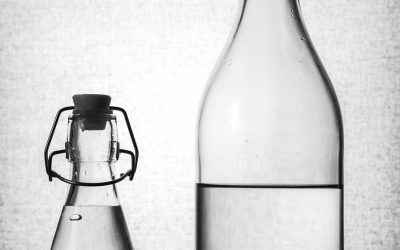Fasting is not a new concept and has been done for a very long time especially in Christianity. In the book of Matthew chapter 6, Jesus stated “when you fast” thus it was expected people to fast which they did to seek God’s guidance like in Acts 13. However, this type of fasting is not the same as intermittent fasting in which people are wanting to cut back on the time to help with weight loss or cut back on food to help with health. That’s totally different parameters outward perspective vs. spiritual.
There’s way more research on animals than humans, so I’m just going to focus on human studies here to give you a closer perspective of how it might relate to you. I’m also not going to focus on the 5:2 fasting regimen (non-restrictive eating for 5 days and restrictive eating for 2 days) as to me this does not seem like a sustainable long-term way of eating. It also can create an increased hunger on the fasting days making it harder to stick to week over week. On the other hand, according to a review paper ” intermittent fasting regimen is a feasible and sustainable population-based strategy for promoting metabolic health”[1], and it’s promising for weight loss with 11 out of 16 studies showed statistically significant weight loss.
CAN YOU LOSE WEIGHT DOING INTERMITTENT FASTING?
Without thinking, people may typically eat an average of 14.5 hours a day. In a 2019 review, “9 out of 11 studies reviewed showing no significant differences in weight or body fat loss” in intermittent fasting vs. calorie-restrictive groups [2]. So, you can lose weight either way and it may just be figuring out what’s easiest for you. If not thinking about the calories you eat but just the time of day, then intermittent fasting may be for you.
In a 2020 review, “all 27 trials examined, intermittent fasting (IF) resulted in weight loss, ranging from 0.8% to 13.0% of baseline body weight” in studies from 2-12 weeks [3]. Again in 2020 a systematic review and metanalysis on fasting ranging from 12-20 hours a day from 4-8 weeks. A total of 11 studies, 5 randomized controlled trials, and 6 observational. The review showed a significant reduction in fasting blood sugar and weight loss[4]. So, weight loss is possible moderately doing intermittent fasting in the short term. However, more studies do need to come out testing this long-term for sustainability and keeping weight off.
CIRCADIAN RHYTHM FASTING
Switching gears just a little bit, I want to talk about circadian rhythm and how it relates to fasting.
Our circadian rhythm is a natural internal process that regulates our sleep and our wake cycles. I like to look at eating based off our sleep scheduled and daily activities. We are active during the daytime when the sun is out and yet the normal American diet typically has a big dinner at the end of the day when our bodies are less active and ready to go to bed as the sun has set.
So, what happens here? Well, exposing ourselves to light at night may also trigger night-time eating [5]. Those eating more at night are likely to be overweight and obese. “Light exposure can influence sleep and circadian timing, both of which have been shown to influence weight regulation” [6]. There is a significant association between light exposure at night and obesity, and this is even after considering sleep duration, alcohol intake, and physical activity [7]. Thus the opposite is true, for lower body weight instead of having light exposure at night, have more light in the morning [8]. Not just weight but bright morning light has been shown to reduce body fat in women [9].
Get outside and take a walk on a sunny day to help with improving your weight, and not only because you are walking but to improve your circadian rhythm. Besides taking a walk on a sunny day, I also love to sit outside for lunch when the weather is nice whether in the sun or shade to increase light exposures as it can make me feel so good.
WHEN TO FAST
The 16:8 approach is fasting for 16 hours Instead of people’s normal 10 hours, then eating for just 8 hours a day. Having the majority of your calories earlier in the day when you are more active is another help to our circadian rhythm. If you decide to wait and fast through the morning, then I would suggest having the bulk of your calories at that first meal than having the biggest meal at end of the day.
Eating a heavy meal or the majority of your calories later in the day when you are less active, may set you up for storing that food when sleeping instead of using it for energy. If you want to do intermittent fasting, then “including breakfast consumption, consuming a higher proportion of energy early in the day, may provide physiological benefits such as reduced inflammation, improved circadian rhythmicity”, improve cell regeneration, stress, and gut bacteria. Also, this study talked about just being consistent with your eating timing for your health regardless if you eat 2 or 6 meals a day [10].
Our organs have peripheral clocks (the liver, fat tissue, & muscles), thus fasting may optimize this function. “Intermittent fasting when timed properly, may sync with one’s circadian rhythm.” [11] When is this time? Earlier in the day is best and not after 4 pm, so definitely no nighttime eating. Harvard says 7 am to 3 pm or 10 am to 6 pm. In conclusion for circadian rhythm fasting,
- get morning sunlight
- eat in the morning
- have the biggest meal either at breakfast or lunch
- no night time eating
- quality of food you eat matters
Have a Happy Healthy Day!






0 Comments